A passionate proponent for preserving the art of DJing, Max Graham sat down with DJOYbeat for an in-depth conversation. It was a DJOY to speak with him (see what we did there?), so much so, we wanted to share the conversation with everyone to gain an insight on the world of electronic music today with such a well-respected force in the industry. Graham talks about his latest compilation, Cycles 5, his preference for at least 6-hour sets, the art of DJing, electronic music culture, cake-throwing, David Guetta, ghost producers and more. Intrigued? Give the interview a download via our SoundCloud or listen right here on our site below (music featured in this podcast from Graham’s “Cycles Radio,” episode 146). Plus, DJOYbeat just got the exclusive word that Graham was so intrigued by After Las Vegas’ viral DJ rules, he’s signed on for a February 22 gig!
Here are a few excerpts from the interview:
Graham on Cycles 5:
This year it’s actually a single. I think we’re going to put it out twice a year instead of once a year, but the previous ones have all been doubles. I designed it as a reflection of my DJ sets. A lot of people judge a DJ based on their production, but that’s actually such a small part of what they may DJ. I’m a pretty multi-genre DJ—even though my production is a little more trance-y. When I DJ I play tech house, I play techno, I’m kind of all over the place. All the parts fit together to tell a bigger story than just playing 30 trance records in a row. So Cycles was the opportunity for me to put a CD together, sort of like a yearly retrospective of where I’m at so people can listen to it and get an idea for how I build a set and how I sound live. Even though it’s only 80 minutes versus the six-hour set that I might play, I like to think I’ve been able to sort of give a condensed version of that. So Cycles comes out every year around this time and it’s cool. It’s become like a little tradition among my community—and that grows every year.
On DJs versus producers in the booth:
I don’t want to use the word “epidemic,” but I think it’s been that case for years. When I started you had producers that were at home and you had DJs that DJ’d and you had guys like Digweed and Sasha that deejayed … The star became the producer … There’s a real sort of paradigm having producers go out that have to learn how to go and DJ in front of a crowd versus guys like John Digweed who are DJs through and through, but who have to produce to keep music out there to sort of—I don’t want to say “relevant” because Digweed’s never going to be irrelevant—but to sort of keep things out there. You hear a lot of fans about producers who can’t DJ but will show up and play three or four hits with other hits around them, but there’s no story, there’s no journey where hour sets play into their favor. But at the same time, that’s part of the scene and I never complain about it. I realize that for me, open to close, playing the whole night plays to my strength.
On how electronic music culture in 2014 is like baby food:
It’s a natural evolution. But it really was sort of the weirdos—and I was one of them—in the ’90s it was such a secret society and everybody felt so unified because it was this tiny group against the world. Now it’s so popular and everybody’s into it and there’s all this fragmentation with genres and even clothing styles. The people who go to BPM are ripping on the people who go to Ultra … but I think that’s natural as it grows. What I like is so many new people are being brought it with the sort of baby food concept. They’re being brought in with the sweet applesauce of these big festivals and the lights and wearing cool clothes and the neon and raging and all the other clichés you want to use. But they are going to grow up and want to try Thai food and Indian food and wasabi. That’s when they’re going to start discovering there’s so much more [beyond] an easy set of 12 bangers or big drops. Some will fall off, some will move on to the next trend, but some will discover Adam Beyer, Richie Hawtin, Seth Troxler, Nic Fanciulli, Carl Cox—the list goes on.
On After’s viral DJ booth rules:
What we liked about it—and when I say “we,” I mean the DJ community—is we got that it was tongue-in-cheek. But the fact that it was coming from Vegas? That fact that it’s sort of known for—everyone’s heard the stories of DJs being pulled off the decks and a real mandate to play for the few that spend a lot of money rather than the dancefloor. … It was really cool to see a club willing to take the risk and go in the opposite direction and stay away from the easy, accessible hits. It was also quite funny the way it was written: “Don’t be lazy!” That kind of hit the nail on the head for a lot of it. I have a friend who lives in Vegas and he was there the opening night and he Tweeted at me that it was “perfect.” That it was the right crowd and the right vibe and to see it in Vegas they proved their point that there is a market for it in Vegas. … When I saw that list, I thought, “This is a place I want to play in Vegas.”
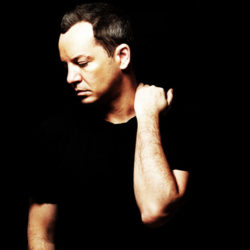
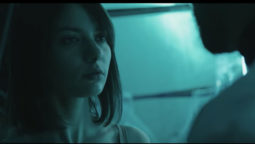

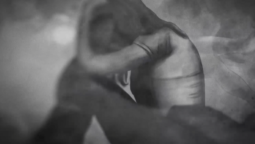
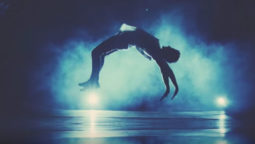
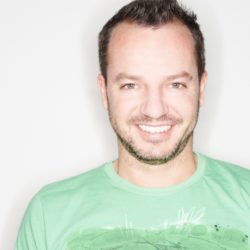

Join the discussion
comments powered by Disqus